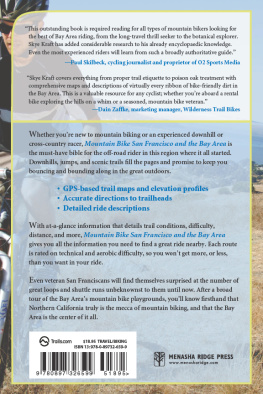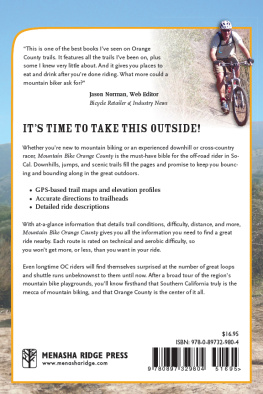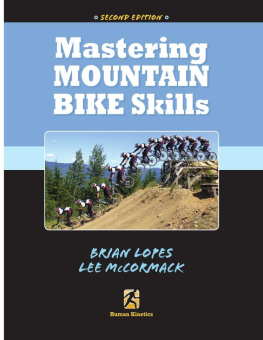Peter Ballin - Mountain bike maintenance
Here you can read online Peter Ballin - Mountain bike maintenance full text of the book (entire story) in english for free. Download pdf and epub, get meaning, cover and reviews about this ebook. year: 2017, publisher: Crowood, genre: Home and family. Description of the work, (preface) as well as reviews are available. Best literature library LitArk.com created for fans of good reading and offers a wide selection of genres:
Romance novel
Science fiction
Adventure
Detective
Science
History
Home and family
Prose
Art
Politics
Computer
Non-fiction
Religion
Business
Children
Humor
Choose a favorite category and find really read worthwhile books. Enjoy immersion in the world of imagination, feel the emotions of the characters or learn something new for yourself, make an fascinating discovery.
- Book:Mountain bike maintenance
- Author:
- Publisher:Crowood
- Genre:
- Year:2017
- Rating:4 / 5
- Favourites:Add to favourites
- Your mark:
- 80
- 1
- 2
- 3
- 4
- 5
Mountain bike maintenance: summary, description and annotation
We offer to read an annotation, description, summary or preface (depends on what the author of the book "Mountain bike maintenance" wrote himself). If you haven't found the necessary information about the book — write in the comments, we will try to find it.
Mountain bike maintenance — read online for free the complete book (whole text) full work
Below is the text of the book, divided by pages. System saving the place of the last page read, allows you to conveniently read the book "Mountain bike maintenance" online for free, without having to search again every time where you left off. Put a bookmark, and you can go to the page where you finished reading at any time.
Font size:
Interval:
Bookmark:
Mountain Bike Maintenance
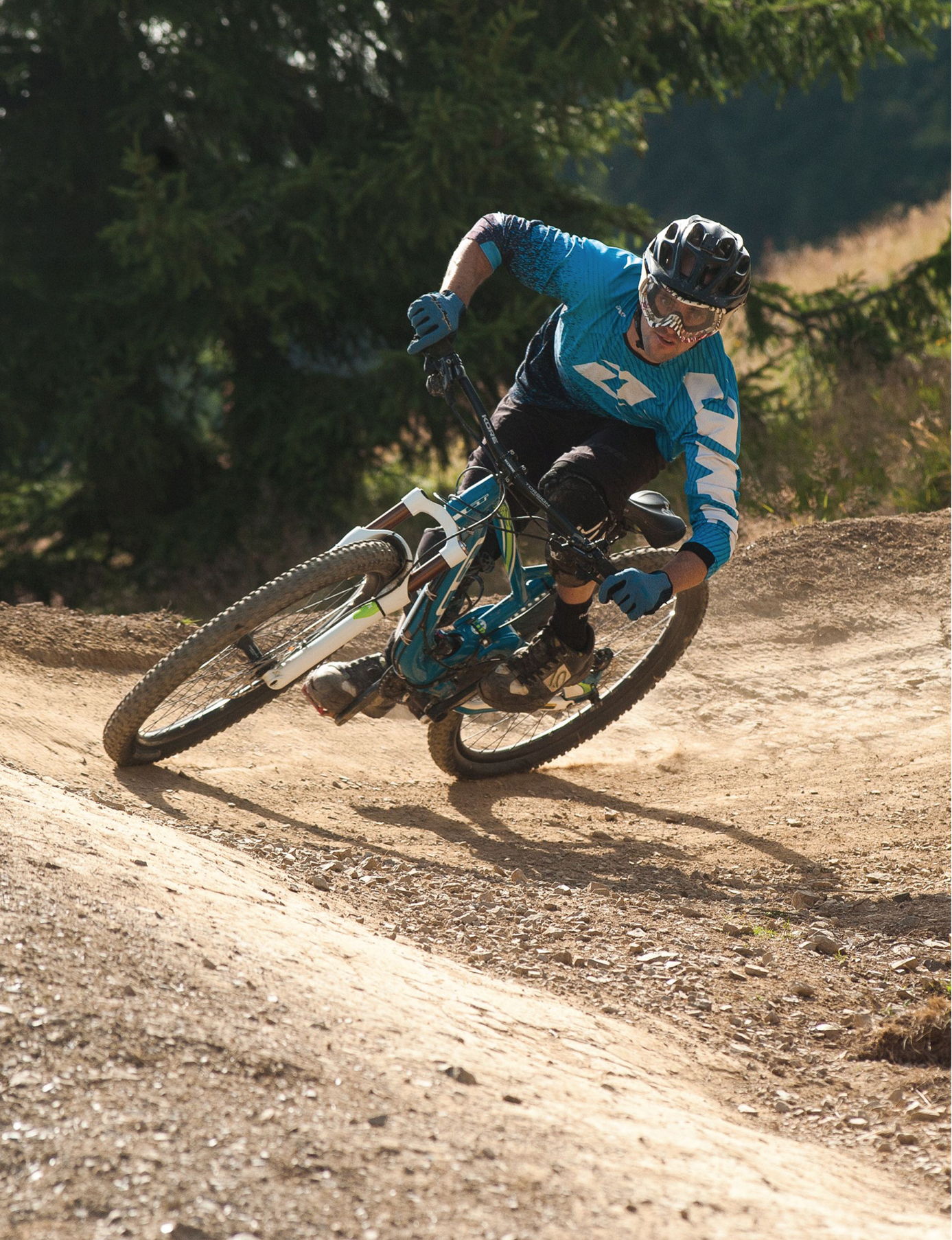
Mountain Bike Maintenance
Peter Ballin

THE CROWOOD PRESS
First published in 2017 by
The Crowood Press Ltd
Ramsbury, Marlborough
Wiltshire SN8 2HR
www.crowood.com
Peter Ballin 2017
This e-book first published in 2017
All rights reserved. This e-book is copyright material and must not be copied, reproduced, transferred, distributed, leased, licensed or publicly performed or used in any way except as specifically permitted in writing by the publishers, as allowed under the terms and conditions under which it was purchased or as strictly permitted by applicable copyright law. Any unauthorised distribution or use of thistext may be a direct infringement of the authors and publishers rights, and those responsible may be liable in law accordingly.
British Library Cataloguing-in-Publication Data
A catalogue record for this book is available from the British Library.
ISBN 978 1 78500 333 2
CONTENTS
CHAPTER 1
EVOLUTION OF THE BIKE
1817 The Walking Machine
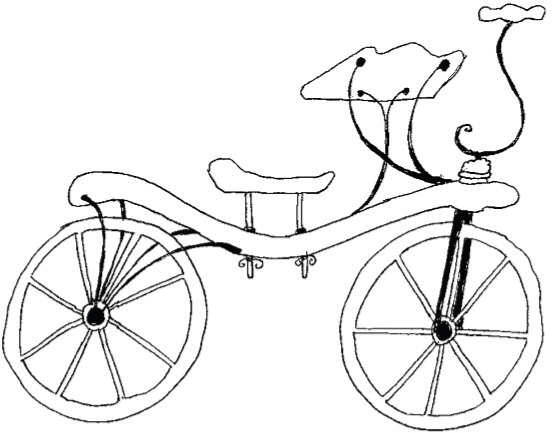
The walking machine.
Initially developed as an alternative to travel by horse, a German named Karl Drais invented the first practical bicycle, which he named the Draisine. It was powered by scooting and, due to its solid wooden wheels and frame, it was incredibly uncomfortable on anything but the smoothest of terrain and hence struggled to gain popularity.
1865 The Velocipede
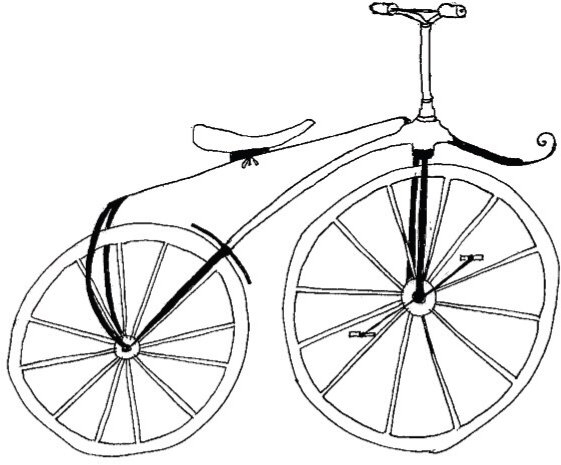
The Velocipede.
In 1865 the next generation of bicycle appeared, this time with pedals mounted to the front wheel. It was named Velocipede, Latin for fast foot, and was nicknamed The Boneshaker. Its wooden frame and metal tyres, combined with the cobbled streets of the day, again made for an extremely uncomfortable ride.
1870 The Penny Farthing
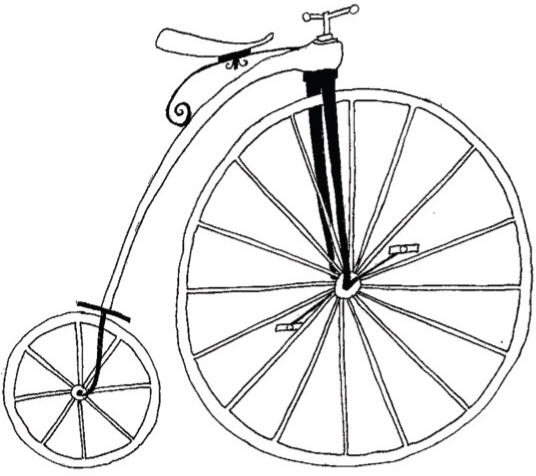
The high-wheel bicycle.
Thanks to advancements in alloys, the first metalframed bicycle appeared in around 1870. The high-wheel bicycle was the obvious next step from the Velocipede; the large front wheel enabled faster speeds and also gave a smoother ride, assisted by metal spokes and rubber tyres. The design quickly became very popular, but also gained a reputation for being dangerous due to the rider sitting so high. The iconic Penny Farthing is the most famous of the high-wheel bicycles.
1880 The Safety Bicycle
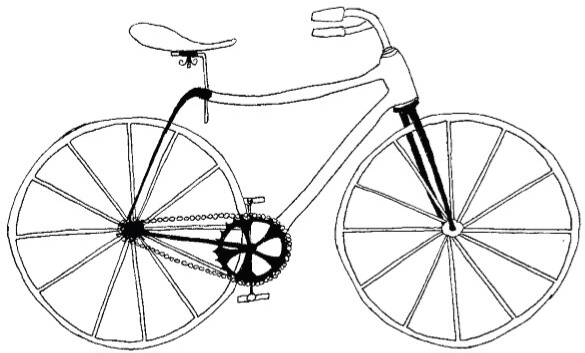
The safety bicycle.
Bearing many similarities to a modern bike, the safety bicycle was a big turning point in the bicycles evolution. Locating a chain-drive transmission between the two wheels helped to increase stability. This was one of the most important differences between the safety bicycle and its ancestors it made people see the bicycle as a legitimate means of transport, no longer a dangerous toy.
The Birth of the Modern Mountain Bike
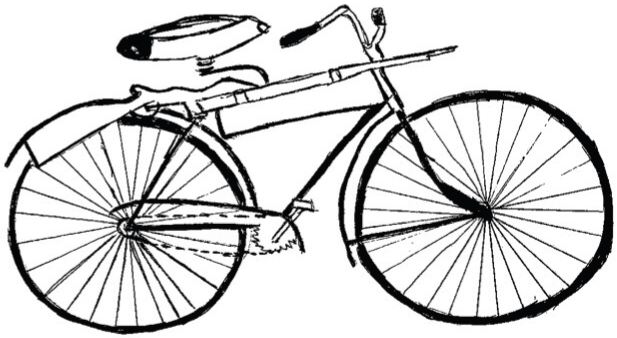
US Army bicycle.
In 1896 the US Army introduced the first specifically modified off-road bicycle to replace horses. As bicycles dont need food, water or rest, cannot become ill and, most importantly, are not easily killed, it was an obvious choice to replace the costly horse. The first modified off-road bicycles were all built with rigid frames and forks.
Less than a decade later, in 1902, European road racers founded the road cycling-based sport of cyclocross. During organized road races, riders would take short cuts through farmers fields to get to the next town quicker. The idea stuck and cyclo-cross was born. The invention of the sport is the first recorded instance of bicycles being raced off-road.
In 1955 a group of cyclists from the United Kingdom created The Rough Stuff Fellowship, a club for cyclists that wanted to ride off-road.
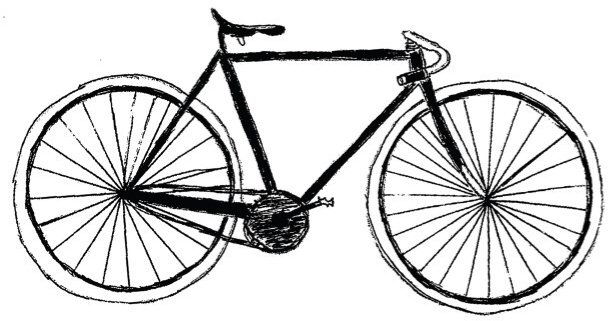
Early cyclo-cross bike.
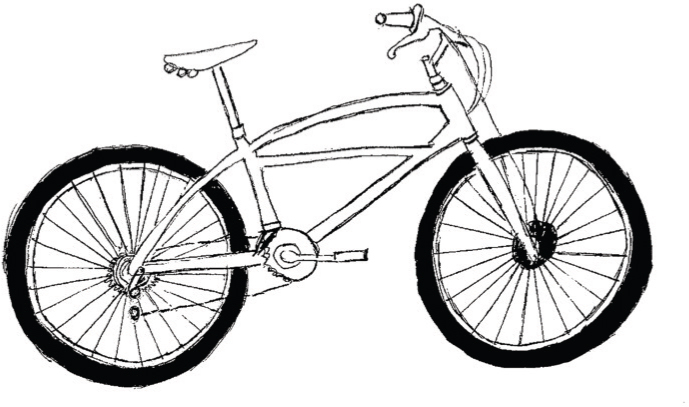
Klunker.
In the early 1970s a group of riders from California retrofitted a heavy beach cruiser from the 1930s with fat balloon tyres, better brakes and motocross handlebars. These bikes became known as Klunkers and were used to race down mountain fire roads. As these races become bigger they became known as Repack races, due to the grease in the hub brakes heating up so much it would melt and spill out, requiring the rider to repack their hubs after each run. Repack racing rapidly became popular and more competitive, sparking innovation for some of the first ever specially designed mountain bike products.
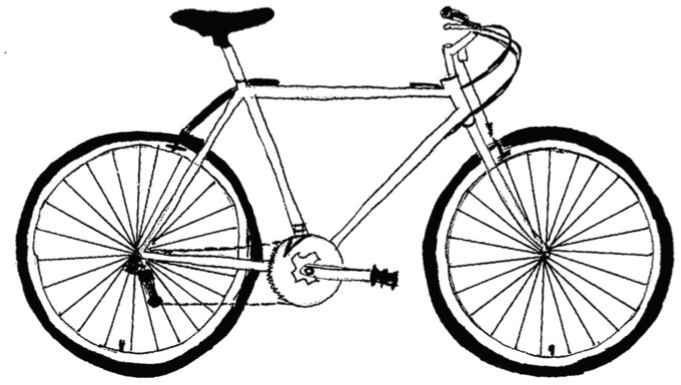
A mountain bike from the 1980s.
In the late 1970s, leading into the early 1980s, a few road bike companies started to mass produce the first mountain bikes, which to begin with were seen as a short-term fad. The first mass-produced mountain bikes were modified road bike frames that had thicker tubing for strength, wider tyre clearance for the larger tyres, and the first flat handlebars to give better stability. Until the late 1980s the sport of mountain biking was still in its infancy and therefore was not taken seriously by the larger bike brands.
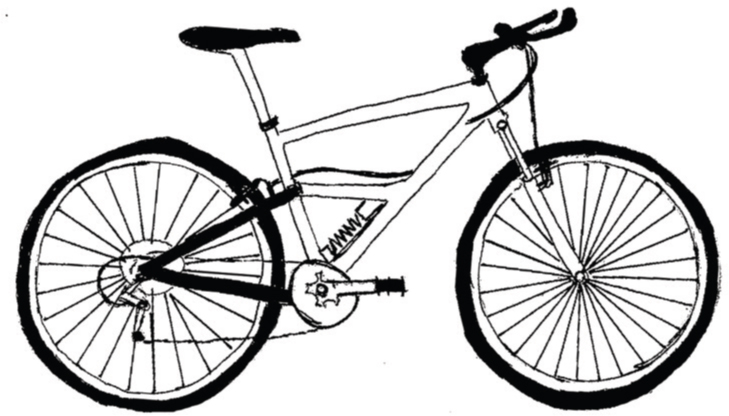
A mountain bike from the 1990s.
In the late 1980s and early 1990s the popularity of mountain biking rapidly grew due to recognition from the media. There were televised events and athletes with big sponsorship deals, which in turn increased innovation in mountain bike technology. People started to realize the benefits of an all-terrain bicycle and larger bicycle manufacturers started to produce mountain bikes (MTB) and invest in new technology.
The Different Types of Mountain Bike
The limits of mountain bike performance and rider skill are constantly being pushed. Whether its riding longer distances, getting down a mountain faster, jumping bigger gaps or hopping between obstacles more quickly or with more style, the progression of the sport is in constant flux. Due to these different specializations, mountain biking has branched off into multiple unique disciplines, with each requiring its own specific bike and equipment. Manufacturers and competitors are always looking for an edge over the competition, so constant technological and manufacturing development is achieved and new technologies are often quickly transferred from one discipline to another.
Next pageFont size:
Interval:
Bookmark:
Similar books «Mountain bike maintenance»
Look at similar books to Mountain bike maintenance. We have selected literature similar in name and meaning in the hope of providing readers with more options to find new, interesting, not yet read works.
Discussion, reviews of the book Mountain bike maintenance and just readers' own opinions. Leave your comments, write what you think about the work, its meaning or the main characters. Specify what exactly you liked and what you didn't like, and why you think so.

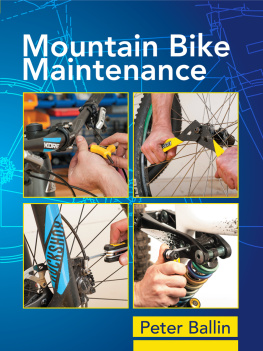



![Shanks - Essential bicycle maintenance & repair: [step-by-step instructions to maintain and repair your road bike]](/uploads/posts/book/235248/thumbs/shanks-essential-bicycle-maintenance-repair.jpg)

